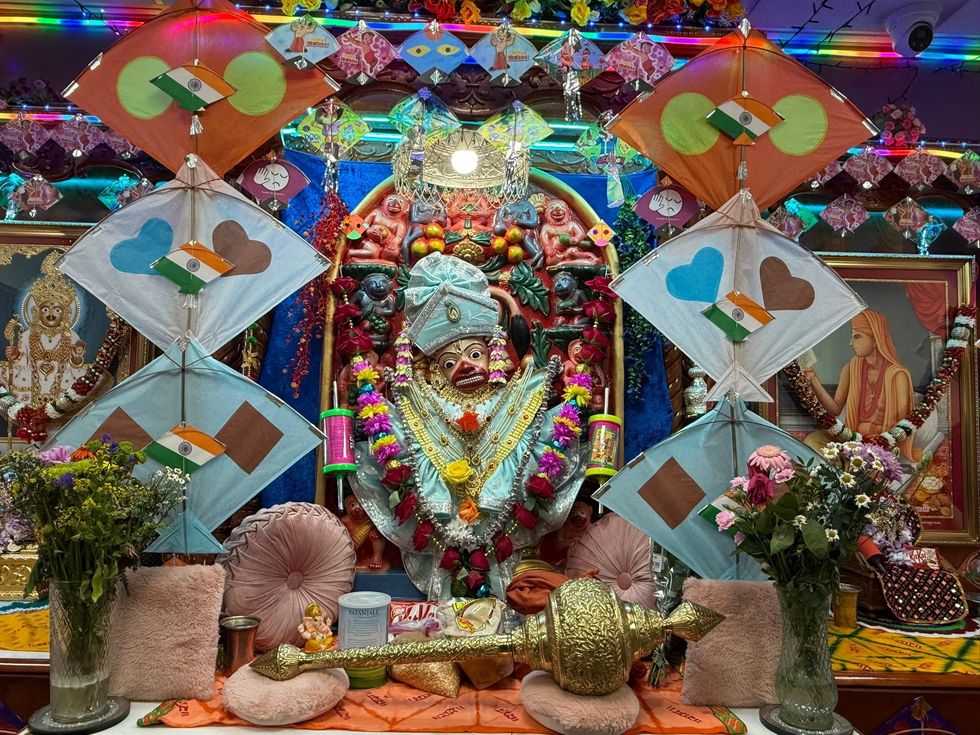SRI LANKA’S tea pickers – who form the backbone of the economy – are determined to use their powerful vote to choose a president who will change grim working conditions for good.
Tea pickers largely voted as a bloc in past polls and the support of the estimated one million people working in the industry will be critical in the tightly fought polls on Saturday (21).
“Nothing has been done for us,” said 42-year-old tea picker K Jesmina, who shares a small tworoom home without running water with 10 family members.
“We hope at least after this election, we will get some help,” Jesmina added, noting that her family shares a toilet with 115 other households.
Tea is the main export of Sri Lanka, the second largest supplier of black tea to the international market according to the United Nations’ agriculture agency (FAO) and the $1.3 billion (£983.8 million) tea exports are vital foreign income.
The aromatic “Ceylon Tea”, known by the island’s colonialera name, is celebrated as among the finest in the world.
But behind the picturesque plantations are conditions that experts said border on modernday slavery. All three front-running candidates – president Ranil Wickremesinghe, opposition leader Sajith Premadasa and Marxist leader Anura Kumara Dissanayaka – have promised to address tea pickers’ longstanding demand for better housing.
The pickers’ main political party, the Ceylon Workers Congress (CWC), are backing the incumbent Wickremesinghe.
He has promised workers freehold land rights and support for pickers to build their own homes.
But years of economic crisis and tough fiscal cuts Wickremesinghe has pushed mean many pickers are deeply distrustful of promises from any politician.
“They come and get our vote, and after that, they don’t care about us,” Jesmina said.
The island’s pickers are mainly from the Tamil minority and arrived from India during British colonial rule, seeking work.
Fairtrade, the global sustainability label, said industry challenges include “low minimum wages, marginalisation of tea workers and the colonial legacy of tea plantation systems”.
Many pickers support the CWC party, backing Wickremesinghe. “We are not slaves,” CWC national organiser Palani Shakthivel, 59, said, before addressing tea workers at a recent rally. “So, we want equal rights – whatever other communities, other people, are enjoying”.
Wickremesinghe’s government in July ordered pickers be paid a 70 per cent wage increase – from 1,000 (£2.53) to 1,700 rupees (£4.30) per day for their backbreaking work.
But it then revoked the decree after employers said they simply could not afford it, .
Typically, a tea picker is paid for around 20 days a month – a gruelling job plucking 20 kilogrammes (44 pounds) of tiny tea leaf tips for each shift.
Pickers say take-home pay is often around 20,000 rupees (£49.95), just below the minimum monthly wage of 21,000 rupees per month.
While some tea companies pay higher wages, tea unions say plantation workers are the worstpaid labourers in the country.
In June, the Ceylon Workers Red Flag Union put plantation workers in front of a three-member panel of former judges from India, Nepal and Sri Lanka.
The judges’ report said they were “horrified by the stark realities” of the lives of plantation workers, including tea pickers, describing exploitation that reduced workers to effective bonded labour. “It has shocked the conscience of the tribunal that such practices could continue unabated in the modern civilised world,” the report said.



















 Donations from devotees offered to the deity
Donations from devotees offered to the deity
